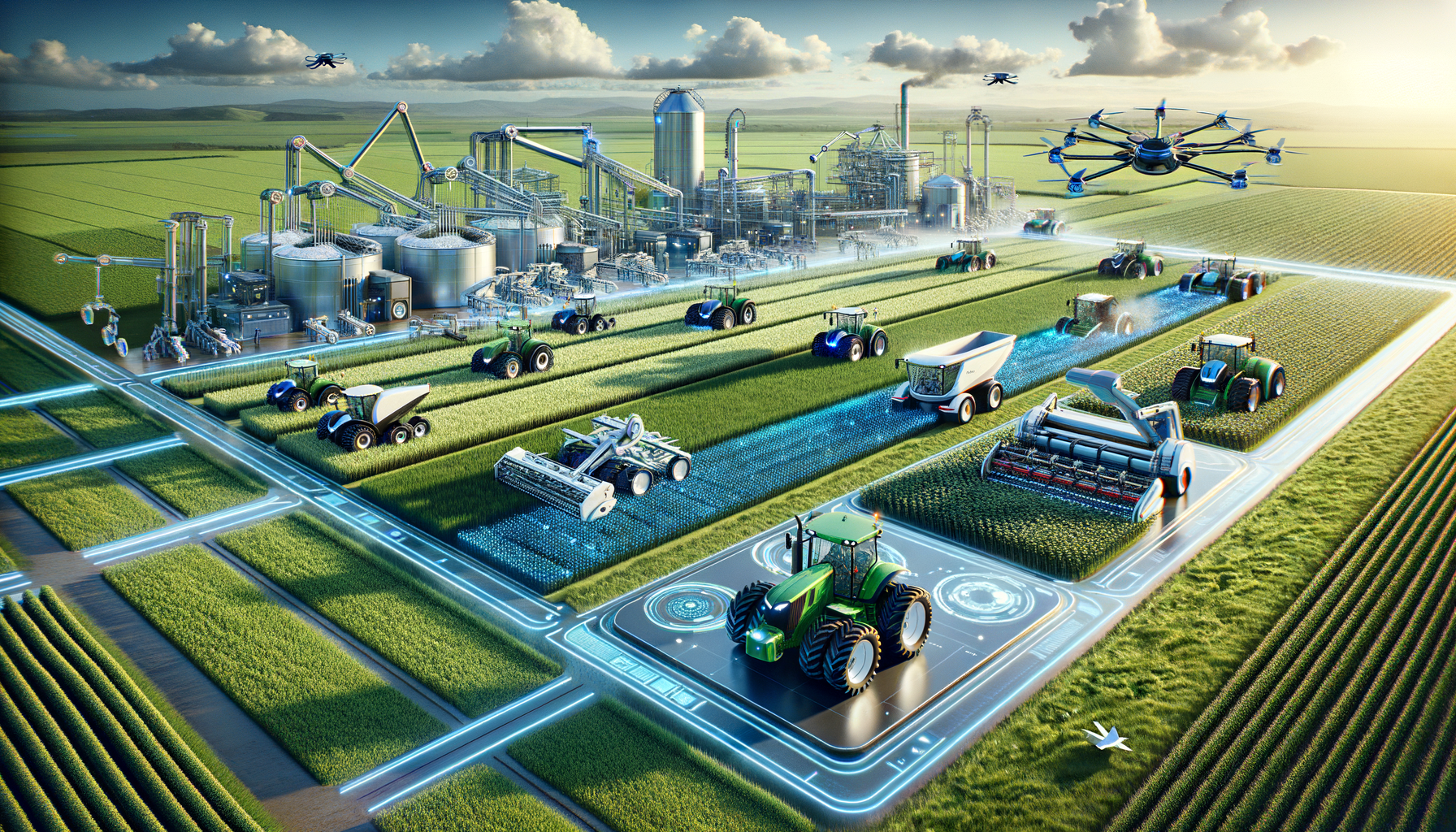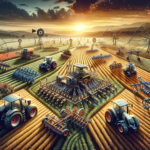The Role of Technology in Modern Agriculture
In recent decades, agriculture has undergone a significant transformation, largely due to the integration of technology. The introduction of machinery has not only increased productivity but also improved the quality of life for farmers. This evolution is crucial as it meets the growing demands of a burgeoning global population. By automating labor-intensive tasks, technology machines allow farmers to focus on more strategic aspects of farming, such as crop management and market expansion. From tractors to drones, each piece of equipment plays a vital role in enhancing agricultural efficiency and sustainability.
Technology in agriculture is not just about replacing manual labor with machines. It’s about precision, efficiency, and sustainability. Precision agriculture, for instance, uses technology to measure and analyze data, ensuring that resources are used optimally. This approach reduces waste and increases yield, making farming more sustainable. Moreover, technology machines help in reducing the carbon footprint of farming activities by optimizing resource use and minimizing wastage.
The adoption of technology in agriculture also addresses labor shortages, a common issue in rural areas. With fewer people available to work on farms, machines fill the gap, ensuring that agricultural activities continue smoothly. This shift not only boosts productivity but also opens up new opportunities for employment in the technology sector, as there’s a growing need for skilled workers to operate and maintain these machines.
Types of Agricultural Technology Machines
Modern agriculture relies on a variety of machines, each designed to perform specific tasks. These machines can be broadly classified into several categories, including tractors, harvesters, drones, and irrigation systems. Each type of machine plays a unique role in the agricultural process, contributing to increased efficiency and productivity.
Tractors are perhaps the most iconic agricultural machines. They are versatile and can be equipped with various attachments to perform tasks such as plowing, planting, and tilling. Harvesters, on the other hand, are designed to efficiently gather crops from fields. These machines significantly reduce the time and labor required for harvesting, allowing farmers to cover more ground in less time.
Drones are a relatively new addition to the agricultural landscape. They are used for monitoring crop health, surveying fields, and even planting seeds. Equipped with advanced sensors and cameras, drones provide farmers with real-time data, enabling them to make informed decisions about crop management. Irrigation systems, which include sprinklers and drip systems, ensure that crops receive the right amount of water, reducing waste and improving yield.
Each of these machines contributes to a more efficient and sustainable agricultural process. By automating routine tasks, they allow farmers to focus on strategic planning and decision-making, ultimately leading to better farm management and increased profitability.
Benefits of Using Technology Machines in Agriculture
The integration of technology machines in agriculture offers numerous benefits, from increased productivity to improved sustainability. One of the most significant advantages is the ability to perform tasks more quickly and efficiently. Machines can operate around the clock, unlike human labor, which is restricted by physical limitations and work hours.
Another benefit is the precision that technology machines bring to farming. Precision agriculture techniques, which rely on technology for data collection and analysis, enable farmers to optimize resource use. This leads to higher yields and lower costs, as farmers can apply fertilizers and pesticides more accurately, reducing waste and environmental impact.
Technology machines also contribute to sustainability by minimizing the carbon footprint of farming activities. By optimizing resource use and reducing waste, these machines help create a more environmentally friendly farming process. Additionally, the use of technology in agriculture can lead to better crop quality and higher yields, ensuring food security for a growing global population.
Furthermore, the use of technology machines can improve the quality of life for farmers. By taking over labor-intensive tasks, machines reduce the physical strain on farmers, allowing them to focus on more strategic aspects of farming. This shift not only increases productivity but also enhances the overall well-being of those involved in agriculture.
Challenges and Considerations in Implementing Agricultural Technology
While the benefits of technology machines in agriculture are clear, there are also challenges and considerations that must be addressed. One of the primary challenges is the cost of acquiring and maintaining these machines. For small-scale farmers, the initial investment can be prohibitive, making it difficult for them to access the benefits of modern technology.
Another consideration is the need for training and education. Operating advanced machinery requires a certain level of skill and knowledge, which may not be readily available in rural areas. This gap can be addressed through training programs and partnerships with technology providers, ensuring that farmers have the skills they need to effectively use these machines.
Additionally, there are concerns about the impact of technology on employment in the agricultural sector. While machines can fill labor gaps, there is a fear that they may also lead to job losses. However, it’s important to note that technology often creates new opportunities for employment, particularly in the technology and service sectors.
Finally, the implementation of technology in agriculture must be done thoughtfully and sustainably. This means considering the long-term impact of machines on the environment and ensuring that they are used in a way that supports sustainable farming practices. By addressing these challenges and considerations, the agricultural sector can fully realize the benefits of technology machines.
The Future of Agricultural Technology Machines
As technology continues to evolve, the future of agricultural machines looks promising. Innovations such as artificial intelligence, machine learning, and the Internet of Things (IoT) are set to revolutionize farming practices, making them more efficient and sustainable. These technologies will enable machines to operate autonomously, reducing the need for human intervention and further increasing productivity.
One of the most exciting developments is the use of AI and machine learning to analyze data collected by agricultural machines. This analysis can provide farmers with insights into crop health, soil conditions, and weather patterns, allowing them to make informed decisions about planting and harvesting. By leveraging these insights, farmers can optimize their operations and increase yields.
IoT technology is also playing a significant role in the future of agriculture. By connecting machines and sensors, IoT enables real-time monitoring and control of agricultural processes. This connectivity allows farmers to monitor their fields remotely, making adjustments as needed to ensure optimal growing conditions.
Looking ahead, the continued integration of technology in agriculture will lead to more sustainable and efficient farming practices. By embracing these innovations, the agricultural sector can meet the challenges of a growing global population and ensure food security for future generations.








